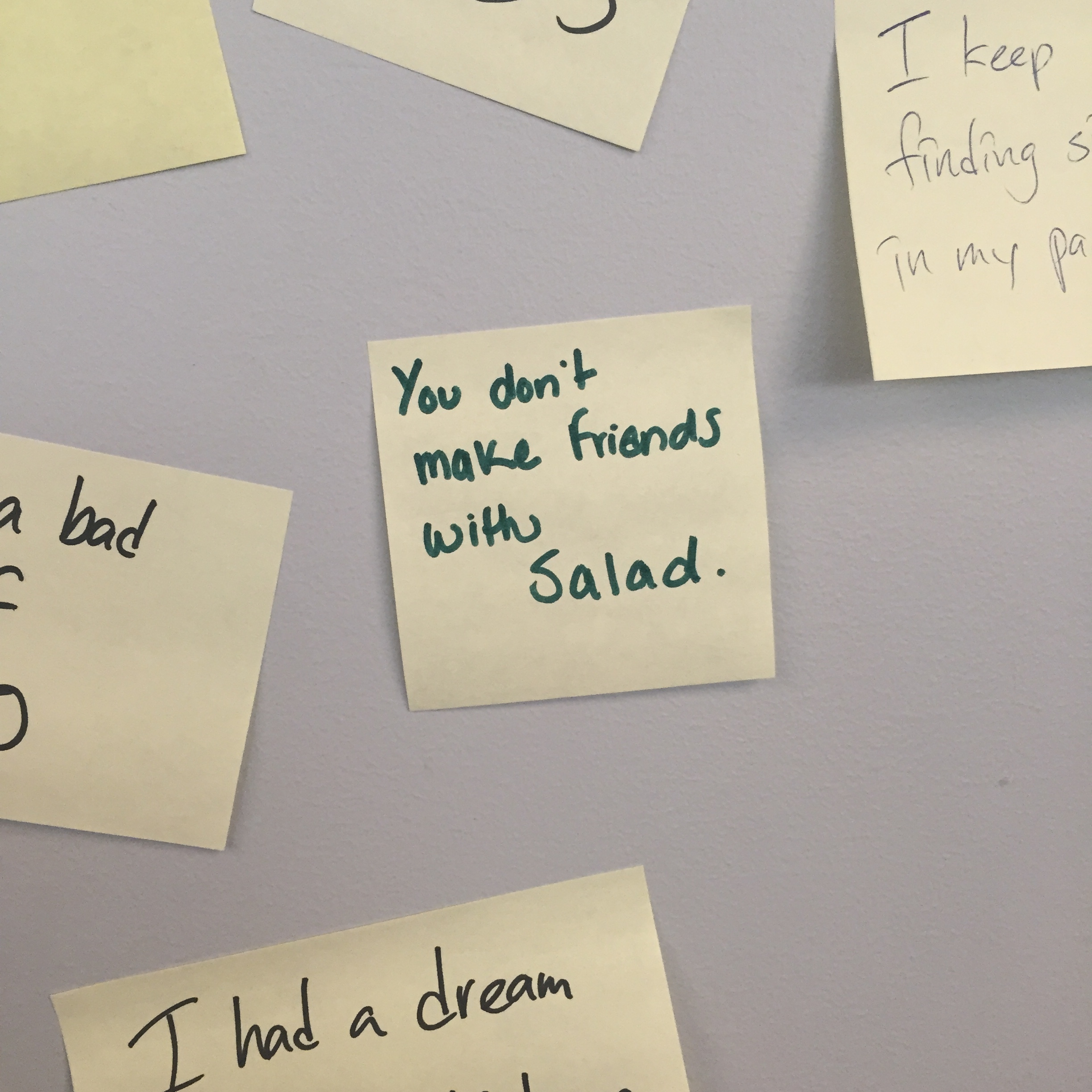One of the most complicated facets of leaving evangelicalism, I think, is learning how to like yourself.
Some of it came instantly for me, and some of it is arriving much slower.
The instant stuff literally happened within days of leaving my faith behind. I remember biking through a nearby park and being struck by the fact that I no longer had to feel like shit because I thought that Jesus needed to save the souls of all the picnickers. I no longer had to see LGBTQ+ couples and remind myself that the love I witnessed, while obviously real, was actually a sin. I no longer had to walk through each moment and hate myself for my sexual desires—I could *gasp* go out on a date if I wanted to! I could kiss a person, sleep with them, re-consider my wants as needs.
It was a spiritual exhale—I could like myself now. I could join the forces of the world that I wanted to be a part of for so long, people who fought for real freedom and not some convoluted interpretation of it. I no longer had to convince myself that my beliefs were good, because I knew that they were. For the first time in 7 years, what I believed made sense to me, and I didn’t have to spend countless hours reading commentaries in the ESV Study Bible to convince myself that what I thought wasn’t, in fact, evil.
But liking yourself after leaving evangelicalism, after staring into the face of our nation’s most powerful cult, is like putting down a boulder and trying to stand upright again. The relief, at first, is great.
And then the pain from all that time carrying a boulder sets in.
I first realized this when I started having sex. I was neurotic about accidentally getting pregnant or contracting symptomless UTIs, overwhelmingly fearful that sex would somehow break my career or my kidneys. I’d be punished, I thought, for doing something so normal—for thinking that someone like me could deserve this kind of pleasure.
I saw the fear again when I sat down to write. I’d spend hours erasing sentences, obsessing over some strange syncopation, telling myself that I’d lost my skill, probably peaking sometime after grad school. I had won an award then, but I’d probably never do that again. I was a one-hit-wonder, probably not a good enough writer to gain and maintain the career that I had hoped for as a child.
It followed me, this fear, every time I had a feeling, lurking in the back of my thoughts when I made new friends, had good conversations, developed new life philosophies. How do you know you’re right? Do you really think you’re that smart? You couldn’t possibly have the brain capacity to go through life and rely on yourself.
It took me a long time to understand that I did have these capacities, that I had gained more than I lost, and that sex wouldn’t kill me. But to do that, I had to return to the root teaching that caused me to doubt my worth as a human being.
*
Evangelicalism has a lot of poisonous teachings, but this may be the most insidious: you’re so polluted by sin that you can’t trust your own feelings. It’s the quintessential way that the church breaks people into pieces with the aim of re-fashioning them into automatons. It’s a mode of attacking personhood and making it sound mild, focusing on “flimsy feelings” and gaining access into the hardwiring of a someone’s judgement.
Feelings, for evangelicals, are a doorway to power, the first thing to seize on the road to controlling everything about a person.
By thinking that my feelings were polluted, I internalized the idea that I was emotionally stupid, that I couldn’t be trusted to steer the course of my own life and I needed someone else to do it. Who got the reigns? Jesus did. Who was Jesus? My pastors would tell you.
As an evangelical, I couldn’t say it, but I didn’t like many of my beliefs. At times, I felt like a terrible person for holding them. How could I have believed that everyone who didn’t hold my salvation doctrine was going to hell? How could I have believed that “the act of homosexuality” was a sin? What type of person was I for actually accepting these beliefs, for lending my strength towards a system that actively harmed people?
I didn’t like myself for beliefs I was told I had to hold—and if I didn’t, I’d lose all my friends. My spiritual family. The life I built in the church.
Liking myself after leaving evangelicalism is one of the hardest things I do every day, because evangelicalism was a constant assault on the deepest parts of my personhood. It was a reprogramming of my heart and mind, a conquering of my thoughts and actions, and I still can’t forgive myself in some ways for letting that happen to me.
Liking myself after this is, in many ways, being at peace with my own vulnerability, with understanding that this happened because I was taken advantage of.
And so liking myself is an admittance of my own humanity. It’s a daily excavation of the idea that being human is inherently wrong.
*
This is where the boulder analogy comes back. We carry the large rock of evangelicalism around, and are sore after putting it down.
But we all know that soreness builds strength, even around our injuries. There’s something to say, I think, for the fact that we could carry that shit in the first place, and even more for the fact that we were able to let it go.
I can say now, for sure, that I like all of us for that.
